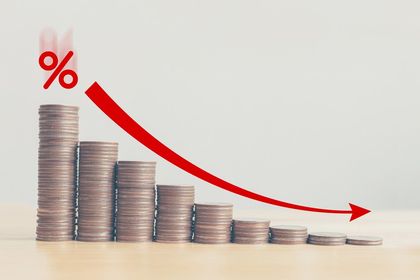How to Handle an Income Reduction During Chapter 13 Bankruptcy
Admin • March 25, 2020

For individuals struggling with unaffordable loan payments or excessive amounts of debt, bankruptcy provides a valuable opportunity to reset their finances. Chapter 13 bankruptcy allows you to consolidate your eligible debts and make one payment each month.
Your income, assets, living expenses, household size, and the specifics of your debt load (like the type of debt you have and whether it's secured by an asset or labeled a priority debt) influence the amount of your Chapter 13 plan payment. When your Chapter 13 plan is over, the bankruptcy trustee discharges the remainder of your qualifying debts.
However, a Chapter 13 plan lasts three to five years, and a lot can change during that time. If you're facing an income reduction while in a Chapter 13 bankruptcy plan, you need to understand your options. Follow this guide for handling an income reduction during Chapter 13 bankruptcy.
Alternatives for a Short-Term Reduction in Income
A short-term reduction in income might occur due to a temporary layoff, illness, or injury. Regardless of the underlying cause, you anticipate receiving your full income in the near future. You have a couple of options for dealing with a short-term income reduction.
Start by reaching out to your attorney and explaining the circumstances that have led to your income reduction. If your bankruptcy plan is currently less than five years long, your attorney can request a payment moratorium.
A payment moratorium stops your bankruptcy payments for a specific period; the skipped payments extend the length of your payment plan. If you need to skip three months' worth of payments, your payment plan will be extended by three months.
However, since a Chapter 13 bankruptcy may only last five years, you typically can't request a payment moratorium if you're already at the maximum plan length. Instead, your lawyer can reach out to the bankruptcy trustee and create an alternative payment schedule that will allow you to get caught up on your missed bankruptcy payments by an agreed-upon date.
If your monthly payments are $1,000 and you skip three payments, you might pay an extra $200 each month for 15 months to make up for the missed payments.
Options for a Permanent Income Reduction
You might experience a permanent reduction in your income due to disability or employment changes. The amount of your income reduction will influence its impact on your Chapter 13 plan.
If your income reduction isn't too severe, your attorney can request a permanent modification of your bankruptcy payment; your new plan payment will take into account the reduction in your income. However, if you're dealing with a significant income decrease, you may pass the means test for a Chapter 7 bankruptcy. If so, your attorney can file a motion to convert your Chapter 13 bankruptcy to a Chapter 7 bankruptcy.
A Chapter 7 bankruptcy has income restrictions, and it requires you to sell your non-exempt assets to pay down your debt. The remaining qualifying debt balances are forgiven.
One caveat of converting a Chapter 13 bankruptcy to a Chapter 7 bankruptcy is that it won't give you a chance to get caught up on any secured debts that you're behind on. Many individuals who file for Chapter 13 bankruptcy incorporate past-due mortgage and auto loan payments into their plan payment.
Should you convert to a Chapter 7 bankruptcy, you'll need to get the lender for a secured loan to reaffirm your loan. Your lender may permit you to catch up on any past due payments by extending the life of your loan or permitting you to pay a small amount each month. Or, if you no longer want the asset that secures the loan, you can surrender it.
Want to learn more about how bankruptcy can improve your financial future? Contact
Frances H. Hollinger, Attorney at Law, for a free consultation.